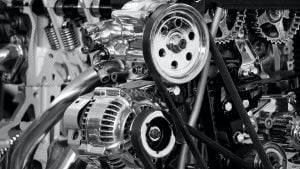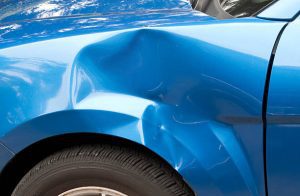How to Improve Your Car Fuel Efficiency


How to Improve Your Car’s Fuel Efficiency


Introduction
As concerns over environmental sustainability and the rising cost of fuel continue to grow, the quest to enhance your car’s fuel efficiency has become more important than ever. Not only does improving your car’s gas mileage save you money at the pump, but it also contributes to reducing greenhouse gas emissions and conserving precious natural resources. In this comprehensive guide, we will delve deep into the world of fuel efficiency, exploring a wide array of strategies and techniques to help you maximize every drop of fuel and make your driving experience more eco-friendly and budget-conscious.
Optimizing Your Driving Habits
1. Master the Art of Smooth Acceleration and Deceleration
A lead foot on the gas pedal and abrupt braking not only waste fuel but also put unnecessary stress on your car’s engine and brakes. Gradual acceleration and gentle deceleration help improve fuel efficiency and prolong the life of your vehicle.
2. Embrace the Steady State with Cruise Control
On highways and long stretches of road, engage your vehicle’s cruise control to maintain a consistent speed. This prevents frequent speed fluctuations, which can lead to higher fuel consumption.
3. Minimize Idling Time
Leaving your engine running while parked or stopped for extended periods consumes fuel unnecessarily. Turn off your engine when you anticipate a wait longer than a minute.
4. Plan Efficient Routes
Combining errands and planning your routes can significantly reduce the distance you travel. Fewer trips and shorter distances mean less fuel consumption.
5. Find the Optimal Highway Speed
Driving at high speeds increases aerodynamic drag and fuel consumption. Consider maintaining a moderate speed on highways to save fuel and arrive safely.
Maintaining Your Vehicle for Efficiency
6. Stick to Regular Maintenance
Following your car’s maintenance schedule for oil changes, air filter replacements, and other routine checks ensures your engine operates efficiently and optimizes fuel consumption.
7. Keep Tires Properly Inflated
Under-inflated tires create unnecessary rolling resistance, making your engine work harder and using more fuel. Check tire pressure regularly to ensure optimal inflation.
8. Select the Right Motor Oil
Using the recommended motor oil for your vehicle can improve engine lubrication and reduce friction, leading to better fuel efficiency.
9. Maintain a Clean Fuel System
Dirty fuel injectors and clogged filters can hinder combustion efficiency. Regular maintenance of your fuel system ensures optimal engine performance and improved gas mileage.
10. Unload Unnecessary Weight
Carrying excess weight in your vehicle, such as heavy items in the trunk, increases fuel consumption. Clear out any unnecessary cargo to lighten your car’s load.
Strategic Choices at the Pump
11. Opt for the Right Fuel Octane
Using a higher octane fuel than your car requires doesn’t necessarily boost performance and can be a waste of money. Stick to the recommended fuel grade for your vehicle.
12. Manage Air Conditioning Usage
Air conditioning puts extra load on the engine and consumes fuel. Use A/C judiciously, especially at lower speeds, and consider using the vehicle’s ventilation system instead.
13. Time Your Fueling
Fill up your tank during cooler hours, like early mornings or evenings. Fuel is denser in cooler temperatures, providing slightly more energy per gallon.
14. Embrace Smooth Acceleration
Aggressive acceleration burns more fuel. Practice gradual acceleration to conserve fuel and reduce wear on your vehicle.
15. Harness the Power of Overdrive
Engage the overdrive gear on highways to reduce engine RPM and improve fuel efficiency during steady cruising.
Additional Eco-Friendly Strategies
16. Ride-Share and Carpool
Consider sharing rides or carpooling with others to decrease the number of vehicles on the road and reduce your carbon footprint.
17. Trim Aerodynamic Drag
Remove roof racks or cargo carriers when not in use to minimize aerodynamic drag and enhance fuel efficiency.
18. Embrace Smooth Driving Techniques
Avoid aggressive driving behaviors such as rapid acceleration and sudden braking. Adopting a smoother driving style conserves fuel and promotes safety.
19. Utilize Engine Auto-Stop
Many modern vehicles feature engine auto-stop technology that shuts off the engine when idling, saving fuel during brief stops.
20. Monitor and Track Fuel Efficiency
Regularly track your vehicle’s fuel efficiency. A sudden drop in mileage could indicate a maintenance issue that requires attention.
By incorporating these extensive strategies into your driving routine and vehicle maintenance, you can embark on a journey to not only reduce your fuel consumption but also contribute positively to the environment. Each small change you make can create a ripple effect, benefiting both your financial well-being and the sustainability of our planet. As you strive for better fuel efficiency, remember that every mile you save is a step towards a greener and more economical future.








